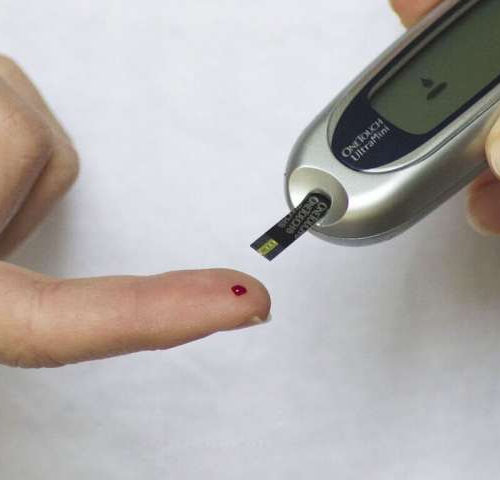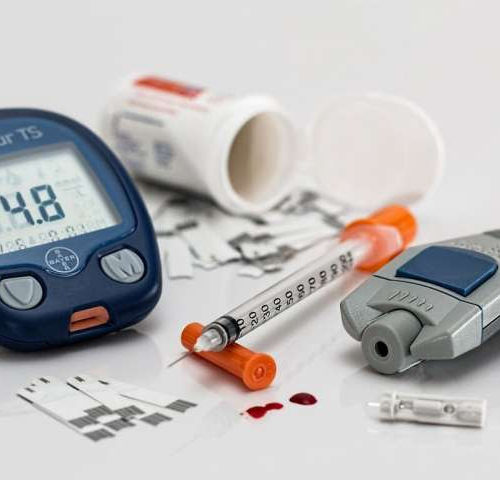by Andrew Myers, Stanford University A Stanford research team has developed a way to boost the effectiveness of the insulin injections people with diabetes routinely take to control their blood sugar. Led by materials scientist Eric Appel, the advance might enable patients with diabetes to take a double-acting shot that contains insulin in combination with...
Category: <span>Diabetes</span>
Diabetes drug may protect breastfed children from future metabolic disorder
by American Physiological Society A new study suggests that treating a breastfeeding parent with a common diabetes drug may provide male offspring lifelong protection against diabetes and obesity. The study is published ahead of print in the American Journal of Physiology-Endocrinology and Metabolism. It was chosen as an APSselect article for May. Studies have shown...
Possible vaccine for virus linked to type 1 diabetes
by Karolinska Institutet According to many observations, certain virus infections may play a part in the autoimmune attack that leads to type 1 diabetes. Researchers at Karolinska Institutet in Sweden and their Finnish colleagues have now produced a vaccine for these viruses in the hope that it could provide protection against the disease. The study...
For people with diabetes and COVID-19, blood sugar control is key
by Cell Press A study reported in the journal Cell Metabolism on April 30 adds to the evidence that people with type 2 diabetes (T2D) are at greater risk of a poor outcome should they become infected with the virus that causes COVID-19. But there is some encouraging news: people with T2D whose blood sugar...
Scientists identify a potential treatment candidate for early type 2 diabetic retinopathy
Diabetic retinopathy is one of the main vascular complications of type 2 diabetes, and the most common cause of visual deterioration in adults. A new study in The American Journal of Pathology reports on the efficacy of a possible treatment candidate that showed anti-inflammatory and neuroprotective effects on the retina and optic nerve head in...
New study links severe sleep apnea to higher blood glucose levels in African-Americans
African Americans with severe sleep apnea and other adverse sleep patterns are much more likely to have high blood glucose levels –a risk factor for diabetes–than those without these patterns, according to a new study funded in part by the National Heart, Lung, and Blood Institute (NHLBI), part of the National Institutes of Health. The...
Smart contact lenses that diagnose and treat diabetes
CREDIT: SEI KWANG HAHN (POSTECH) Diabetes is called an incurable disease because once it develops, it does not disappear regardless of treatment in modern medicine. Having diabetes means a life-long obligation of insulin shots and monitoring of blood glucose levels. But what if you could control the secretion of insulin just by wearing contact lenses?...
Older men with sarcopenia are more likely to develop diabetes over time
Older men with sarcopenia are more likely to develop diabetes over time New findings point to age-related muscle loss as a contributing factor to diabetes in the elderly THE ENDOCRINE SOCIETY PRINT E-MAIL WASHINGTON–Older men who have lower lean body mass as they age are more prone to developing diabetes, while similar findings were not...
Boosting levels of good fats with an experimental drug that acts on two newly characterized genes
LA JOLLA–(May 1, 2020) Salk and Scripps Research Institute scientists, along with collaborators at the pharmaceutical company Lundbeck, identified two genes that can regulate levels of healthy fats, called FAHFAs, in mice. The team found that the loss of the two genes led to higher-than-normal levels of the beneficial FAHFAs, while blocking the genes’ activity...
Researchers identify unique glucose-sensing neurons that regulate blood sugar
by Baylor College of Medicine Low blood sugar levels, known as hypoglycemia, can be a life-threatening situation, especially for people with type 1 diabetes who rely on intensive insulin therapy to prevent blood sugar from going too high. Solutions to this problem may come from a better understanding of the basic mechanisms keeping blood sugar...








